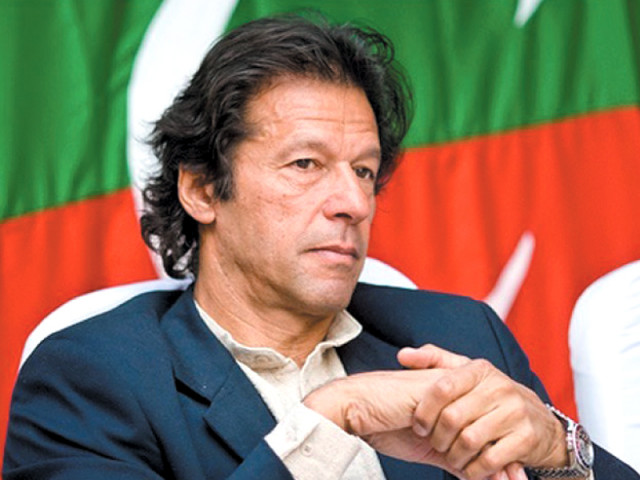Analysis: Poll projections often go awry
We were told that people of Pakistan are sick and tired of “the turns" of PPP, PML-N and now was the time to move...

PTI Chairman Imran Khan. PHOTO: FILE
Ms Benazir Bhutto had also been a crowd-puller once upon a time, but Khan’s admirers compared his rise with Zulfikar Ali Bhutto in the late 1960s and feverishly projected his potential to emerge as the much-awaited ‘third force’ set to flood the power scene with ‘new faces’.
We were told that people of Pakistan are sick and tired of “the turns” that the two mainstream parties, the PPP and the PML-N, have been relishing in power since 1988. Now was the time to move beyond them.
The internet-savvy devotees of Imran Khan took such assessments rather seriously.
With accumulated experience of covering all elections held in this country from 1985 to 2008, I never felt convinced by such projections; they didn’t relate to ground realities. Discussing elections, we often tend to forget the political culture that General Zia had introduced and strengthened with obsessive hatred of political parties with definite ideas to execute.
After enforcing ruthless ban on political parties and strict censoring of media for eight years since 1977, the praetorian managers of our political scene spotted, groomed and promoted a new breed of ‘notables.’ Instead of looking at big political picture, this breed was encouraged to focus on ideas to provide Sarak-Panni-Bijli (roads, water and electricity etc) to their respective areas.
The state patronized these ‘agents of local development’ with generous funding. Groomed via long years of essentially apolitical local governments, most of these agents were then facilitated in getting to the national and provincial assemblies through the election held in 1985 on non-party basis. Even after reaching there, the neo-political elite was hardly given any chance to discuss and decide on vital issues when it comes to running a state and governing the country.
Both Ms Bhutto and Nawaz Sharif miserably failed to discard this trend during their turns in the government and during eight years of another praetorian dictator, General Musharraf, rather consolidated the same trend with fancy ideas of ‘grassroots democracy.’
Three consistent decades of the ‘development-driven politics’ have created vast swaths of constituencies left to the whims of so-called ‘electables’. They have ‘territories’ to rule with state patronage that you manage to get after elected to various assemblies.
Until now, we have seen seven general elections in Pakistan since 1985. The frequency of elections has enabled the state sponsored notables to build and consolidate a huge network of supporters for warlords-kind ‘electables’ vying to fight against each other for reaching the state patronage-delivering national or the provincial assemblies. You cannot smash and conquer these networks by just being hyperactive on social media or frequent babbles on the screen of infotainment-driven 24/7 channels.
If in doubt, just consider the PTI’s dealing with the election scene of Rawalpindi. Its downtown has two national assembly seats: NA 55 and 56. Until 2008, Sheikh Rashid Ahmad had remained an invincible master of this territory. As a “poor street boy”, Rashid’s main constituency had been the numerically strong but clannish Kashmiri community of Rawalpindi. After building his ‘base’ in this community, he gradually went on to speak for the traders and shopkeepers of this town as well. Nawaz Sharif is the ultimate spokesperson of the same communities. Little wonder, Rashid lost their support in Rawalpindi after presumably “betraying his mentor.” After losing not one but two elections in his ‘home constituency’ since 2008, he remained lost in wilderness.
But he now feels lucky that Imran Khan the budding “symbol of change,” is supporting him to contest the national assembly seat of NA-55. In return, Rashid has promised to help the victory of Imran Khan for another national assembly seat from the neighbouring NA-56.
If the so-called “youth bulge” and the “message of change” that the PTI social media activists had been drumming nonstop were so relevant, NA 55 and NA 56 were the most appropriate constituencies to test the worth of these theories on ground. Imran Khan has failed, however, to find ‘new faces’ with no political baggage but potential to think new and big to launch from these constituencies and this forces me to predict “no surprises” on May 11, 2013.
Published in The Express Tribune, April 6th, 2013.



















COMMENTS
Comments are moderated and generally will be posted if they are on-topic and not abusive.
For more information, please see our Comments FAQ